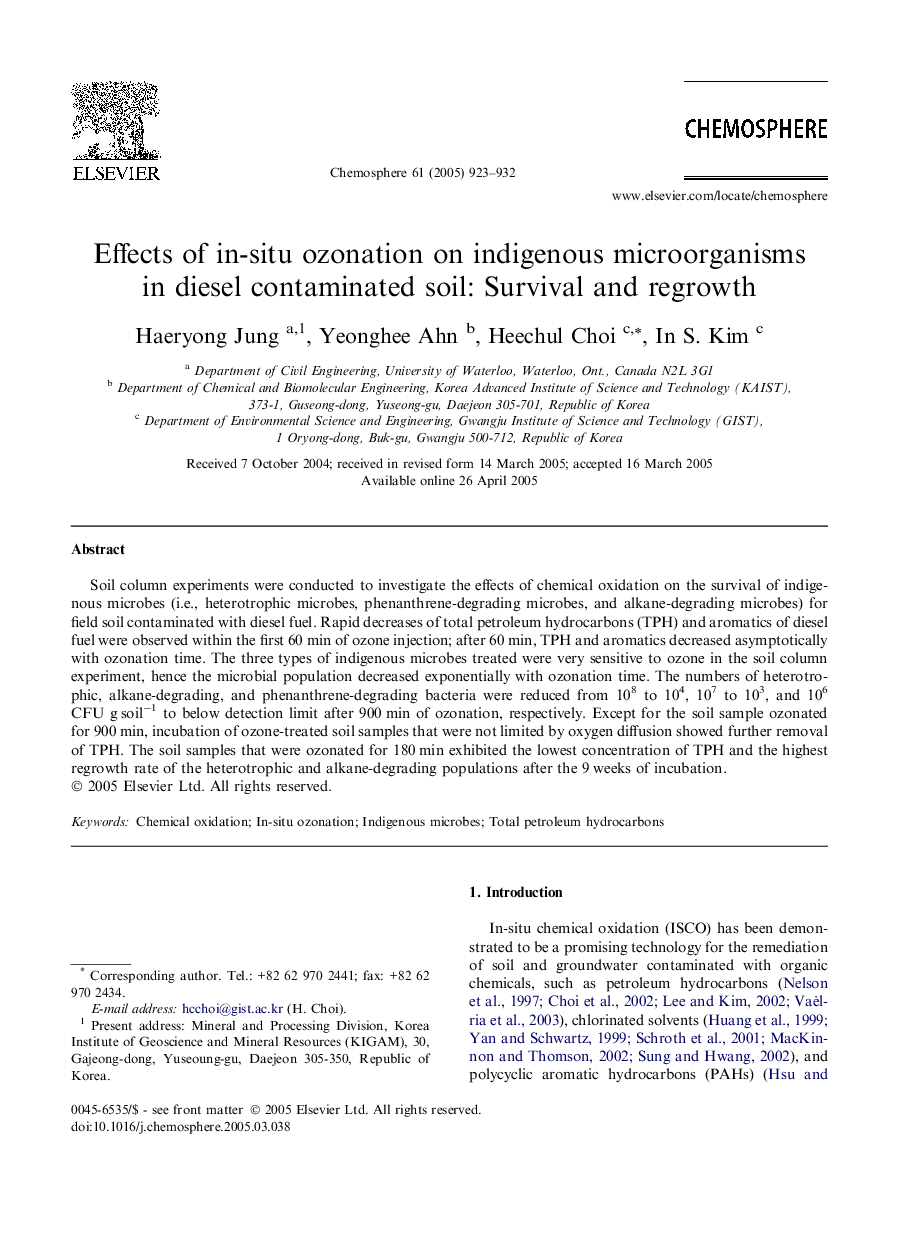| Article ID | Journal | Published Year | Pages | File Type |
|---|---|---|---|---|
| 9451541 | Chemosphere | 2005 | 10 Pages |
Abstract
Soil column experiments were conducted to investigate the effects of chemical oxidation on the survival of indigenous microbes (i.e., heterotrophic microbes, phenanthrene-degrading microbes, and alkane-degrading microbes) for field soil contaminated with diesel fuel. Rapid decreases of total petroleum hydrocarbons (TPH) and aromatics of diesel fuel were observed within the first 60 min of ozone injection; after 60 min, TPH and aromatics decreased asymptotically with ozonation time. The three types of indigenous microbes treated were very sensitive to ozone in the soil column experiment, hence the microbial population decreased exponentially with ozonation time. The numbers of heterotrophic, alkane-degrading, and phenanthrene-degrading bacteria were reduced from 108 to 104, 107 to 103, and 106 CFU g soilâ1 to below detection limit after 900 min of ozonation, respectively. Except for the soil sample ozonated for 900 min, incubation of ozone-treated soil samples that were not limited by oxygen diffusion showed further removal of TPH. The soil samples that were ozonated for 180 min exhibited the lowest concentration of TPH and the highest regrowth rate of the heterotrophic and alkane-degrading populations after the 9 weeks of incubation.
Related Topics
Life Sciences
Environmental Science
Environmental Chemistry
Authors
Haeryong Jung, Yeonghee Ahn, Heechul Choi, In S. Kim,
